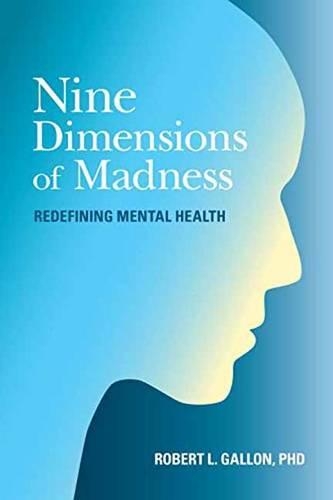
Nine Dimensions of Madness: Redefining Mental Health
(Paperback)
Publishing Details
Nine Dimensions of Madness: Redefining Mental Health
By (Author) Robert L. Gallon
North Atlantic Books,U.S.
North Atlantic Books,U.S.
1st December 2015
United States
Classifications
General
Non Fiction
Psychiatry
616.89
Physical Properties
Paperback
496
Width 152mm, Height 228mm, Spine 35mm
658g
Description
In a book that reframes the mental health debate, Robert L. Gallon challenges the widely-held notion that mental disorders are medical diseases. Drawing on his extensive experience as a psychologist who has worked with thousands of patients, he argues that there are no objective indicators of mental disorders and therefore no way of drawing a distinct line between people who have them and people who don't. Gallon outlines an alternative to the disease model defined by nine dimensions of dysfunction that encompass the range of human dysfunctions typically classified as mental disorders. He explains the origin of these problems, not as chemical imbalances and genetic abnormalities, but as the complex interaction of biological, psychological and social factors, called the Biopsychosocial model. Nine Dimensions of Madness will appeal to anyone interested in health policy and appropriate uses of the medical and mental health systems, including professionals and those under treatment.
Reviews
Readers of this eye-opening book will find their beliefs and assumptions about mental disorders forever changed. Dr. Gallon has an axe to grind and he grinds it to a razor-sharp edge. He is scathing in his indictment of the medical model that prevails in psychiatry, which he sees as not only fundamentally flawed, but self-serving. Combining scholarly research with his personal experiences as a clinical psychologist, with fascinating examples and anecdotes, the book is an eminently readable exploration of madness in our time.
Howard Ehrlichman, PhD, Emeritus Professor of Psychology, Queens College of the City University of New York and coauthor ofPersonality Psychology: The Science of Individuality
An interesting and important book. The subject, mental disease and disorder, is worthy of careful attention. Gallon beautifully illustrates the differences between taxonomy and typology. The changes in treatment, the consequences to society of those changes, and the advocates of those changes are well laid out. He does not shrink from the responsibility of defining where he stands or what direction we should take.
Julius R. Krevans, MD, Emeritus Dean of the Medical School andEmeritus Chancellor, University of California, San Francisco
Author Bio
Robert L. Gallon, PhD, has taught in the Department of Psychiatry and was a psychologist at the Psychosomatic Medicine Clinic at the Jefferson Medical School. As Chief Psychologist at Eastern Maine Medical Center he worked with the Rehabilitation Medicine Department to found a Chronic Pain Program. He was a Psychological Examiner for the court for involuntarily committed psychiatric patients and a consulting psychologist for the State Forensic Service. Over the course of his career, has evaluated more than 5000 individuals in a wide variety of circumstances.
